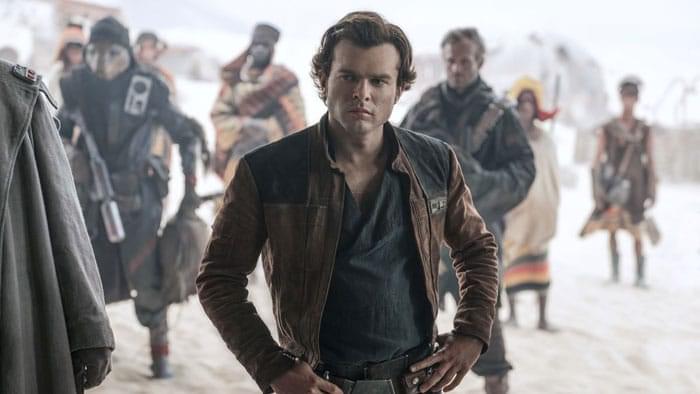
After watching “When Stand Up Stood Out”, you will not need Comedy Central as much as you think you do. You will not need neatly packaged comedians who come with announcements important to their own lives, followed by applause, nor opinions and sob stories about dates, relationships, and the ever-popular and ever-tired topic of marriage. This is where comedy comes to achieve immortality, at least in the early days of the Boston comedy club scene which exploded with then-up and coming names like Steven Wright, Denis Leary, Lenny Clarke, Don Gavin, Kenny Rogerson, and Bob Crimmins. They knew and still know that audiences need to be cattle-prodded into seriously thinking about the anomalies that are around them every day of their lives. They were the men to do it.
And filmmaker Fran Solomita is the one to expound on the history of what made these comedians popular, and the inherent dangers that came with overexposure by the media and instant success for some of them who were propelled out of Boston while others had to stay behind and fume over not getting their chance right away. When the material’s hot, as it was for Steven Wright, TV comes calling, especially in performing on the Tonight Show with Johnny Carson and in what usually is a rare moment for a comedian, being invited to sit next to him as soon as the act is over.
The difference in comedy today is that too often, comedians write those lines that are easy for an audience to laugh at, waiting for them to finish laughing, and then going on to the next line. In short, many of them are walking sitcoms, with no panache, no great desire to really shake the cores of those who paid to get in. Leary did, Clarke did, and there’s Don Gavin in one moment, talking about finding a phone number at an Indian casino for gambling problems. To us, the number is for gambling addicts. To Gavin, it means something far different and he runs with it as if he was holding fire in his hands and he fobs it off on that audience and us, and it’s pure verbal cocaine. With Wright, his routines were always exactly that and wait until you see a younger and far more hyped up Leary, sweating crazily with his trademark cigarette in one hand and his mind somewhere unknown to us.
Solomita is all about upending expectations and in footage from one of the Boston clubs, he digs at his own name, joking that his brother Barbara had more problems than he did. It’s not only funny to watch these comedians young, and in the case of Bobcat Goldthwait, just even more insane than he is today. And it’s a nice contrast set up by Solomita as many of the comedians who performed at the beloved Ding Ho Chinese restaurant return for a reunion concert to raise money for medical insurance for Crimmins and certainly they’ve returned, but not their younger selves. They’re different people now and it’s a fascinating study in how where we are at one time only exists briefly and then it’s on to the next point of their lives, moving on to all the other points until we’ve left a basic paper trail of ourselves everywhere, or at least in our memories and in other people’s memories. That’s what it is here and to watch these comedians retain their own unique edges after all this time is a testament to how keeping up with oneself creatively is most important if we intend to express ourselves on anything, through any artform. They also show why stand-up comedy is its own artform, how it requires various elements to make it work and how when it doesn’t, it’s disastrous. Here, it’s a triumph.
Solomita weaves the reliable story of sex, drugs, booze, and jealousy between comedians which makes for tantalizing drama through interviews, but he misses really giving the minutes over to these comedians. In interviews, they talk enough about who they were years ago, what it was like to perform at the Ding Ho, what kind of personality Bob Crimmins was, and how Kevin Meaney was hilariously cracked when he did his ‘Man on the Street’ bits live at the club, bringing a camera outside with him and in his most revered bit, entering the ladies’ room of the club with the cameraman in tow. But in stage presence, in watching these comedians in their younger years, it’s not enough. There’s too little of Leary, enough about Lenny Clarke and his short-lived local TV show, but not quite enough of him on stage. True that this is all about how Boston caused a stand-up explosion and how the media exacerbated it, but in essence, it’s also about how these comedians’ styles work. He works in a good chunk of minutes of them at the reunion concert, to be sure, but more of them back then is most important, especially to those not born during this crazed and riotous revolution.
On the DVD, comedian Dane Cook helps out somewhat by talking up his memories of that Boston scene, especially Kevin Meaney and his camera, and there’s separate footage of those classic moments on the same disc. Solomita and his producers take part in talking about making this documentary, which started in 1999, and reveals that 210-215 hours of footage was shot. Talk about a moment where a two-disc set might have been quite a value! More of these comedians’ early days might very well be hidden in those hours.
Solomita’s most important strength is how he forms this documentary lovingly. He was part of those days and while I’m sure nearly everybody on Earth doesn’t know who he is, this is him right now. That’s him on stage, this is him as a filmmaker again loving those golden glory days, and this is us, laughing as if we had been starved of it for months at a time. So see it, and laugh until your innards turn to Jell-O.

